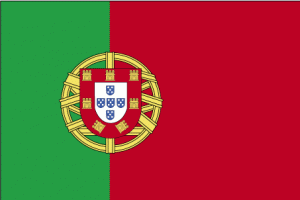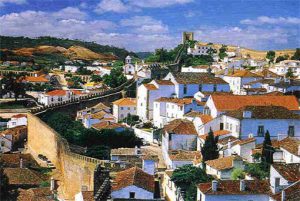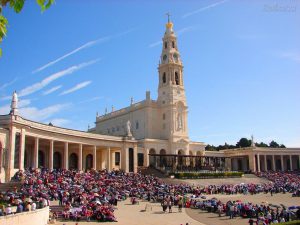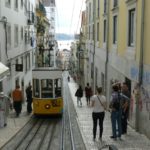Gay Life in Portugal: a Preliminary Review (before my visit)

Gay Rights and Legal Changes in Portugal
Lesbian, gay, bisexual and transgender rights in Portugal have improved substantially in the past decade and are now among the best in the world. After a long period of oppression during the Salazar dictatorship, Portuguese society has become increasingly accepting of homosexuality, which was decriminalized in 1982, eight years after the Carnation Revolution.
Portugal has wide-ranging anti-discrimination laws and is one of the few countries in the world to contain a ban on discrimination based on sexual orientation in its Constitution. Since 5 June 2010, the state became the eighth in the world to recognize same-sex marriage, even though any couple of the same sex are not able to jointly adopt – but they may adopt as individuals. On 1 March 2011 the President ratified the Law of Gender Identity, said to be the most advanced in the world, which simplifies the process of sex and name change for transsexual people.
Gay Life in Portugal
Although there are several cases of public prejudice against LGBTs, there is a dynamic gay scene in Lisboa, Porto and in the main touristic cities of Algarve, like Faro, Lagos, Albufeira and Tavira, with gay bars, pubs, nightclubs and beaches (in Algarve). Other smaller cities and regions such as Aveiro, Leiria, Coimbra, Braga and Madeira have much more discreet gay communities, nearly invisible to the public eye.
In Lisbon, most LGBT-oriented businesses are grouped around the bohemian Bairro Alto and the adjacent Príncipe Real and Chiado neighbourhoods. In both Lisbon and Porto there are also annual Gay Pride Parades that attract thousands of participants and s pectators.
pectators.
Lisbon is also host to one of the largest LGBT film festivals in Europe – Queer Lisboa – the Lisbon Gay & Lesbian Film Festival. Some Portuguese beaches are popular among LGBT population, like 19 Beach, near Costa da Caparica, and Barril Naturist Beach (an official naturist beach) or Cacela Velha beach, both of them near Tavira.
(From: http://en.wikipedia.org/wiki/LGBT_rights_in_Portugal)
LGBT places: http://algarve.angloinfo.com/information/33/gl.asp
Search for Gay Marriage: http://www.lifesitenews.com/news/archive/ldn/2009/jan/09012711 (LifeSiteNews.com) January 27, 2009
The leader of Portugal’s ruling Socialist Party, Jose Socrates, has announced his support for homosexual “marriage,” sparking controversy and protest throughout the country and within the Socialist Party (PS) itself.
Gay Pride Portugal: http://www.marchaorgulholgbtlx2012.blogspot.com/
It will be the fourth Saturday in June that the LGBT Pride will go back to the streets of the capital. The organizing committee of the LGBT Pride March Lisbon announced that the 13th edition of the march again leaving the Garden of Crown Prince on 23 June 2012. The march celebrates LGBT pride in being opposed to shame and at the same time marks the events of resistance to homo-and transphobic violence occurring in the bar Stonewall Inn in New York in 1969. The episode is a milestone in the fight against oppression and a cry of freedom in the history of LGBT people.
Portugal News & Reports: http://archive.globalgayz.com/europe/portugal/gay-portugal-news-and-reports/
When she turned 38 last month, Brenda Frota Johnson got a sweet surprise: a formal “happy birthday” from her longtime partner’s mother. It wasn’t a gift or even a card, just a succinct text message, but even so, it had no precedent over the 10 years that she and her partner, Isabel Advirta, 39, had been making a life and a home here together. Why this birthday? The two women share a theory. “Brenda’s now officially a part of the family,” Advirta said recently as they watched their 3-year-old daughter, Salomé, play in a leafy Lisbon park. Johnson agreed. “It’s because we’re married,” she said. That legal blessing — that loftiest of imprimaturs — has changed little between them but a lot around them...
From: http://www.caffmoscommunity.com/cd_prev_cottage.asp?cid=192 Casa LeonArt gay men’s guesthouse central Portugal, Penacova
A sunshine, clothing-op holiday at 1/2 the cost of Greece or Italy just 2 hours flight from UK and 70 minutes from Porto airport. We are in an unspoilt rural area with the charm of the 1950s; long hot summers, 5 to 11 hours of sun a day from April to October, and our clothing optional garden and pool get all day sun until 7pm.
We designed Casa LeonArt for like-minded mature gay men (35+) who value privacy and tasteful idyllic surroundings; terraces facing east, south and west so you can have Sun all day. In the private walled garden are two sunbathing areas which are clothing optional as is the 10 by 4 metre pool. You can also relax on the 40 metre long arcade which gives shade on the hottest days. We are surrounded by olive and pine trees, and vines which our Portugese neighbours use to make their own wines.
As you would expect, our rooms are very individual, two in the house, one on the garden, giving a choice of styles and costs. You can see them in the presentation on our website.
You can combine a visit here with time in Lisbon or Porto, or it would be easy just to relax and stay at Casa LeonArt all day – there is no music by the pool just the sound of the birds who frequent our garden, and we can provide inexpensive refreshments, lunch and dinner at extra cost. Or, you can dine locally – we tell you the best restaurants.
Although we specialise in catering for mature couples 35+, if you are younger and seek a quiet rural sun holiday Casa LeonArt would be perfect for you. Between us we speak Portuguese, German, Italian and of course English, and we try to cater for any special needs you have – just email us before booking. We are a non smoking guesthouse but there is a smoker’s area in the garden.
Gay History in Portugal
Spain and Portugal have a long history of official repression and public tolerance of homosexuality. These days, the voices of repression can generally be ignored, and the two countries are as gay-friendly as practically anywhere you care to mention. Sitges, Ibiza, Torremolinos, the Algarve and the Chueca quarter of Madrid are the main gay centres, but except for the most rural backwaters, you will find some gay life everywhere.
Unfortunately, there are still vestiges of anti-gay feeling among more conservative elements in Spain, and the eight years of government by the Partido Popular were less than ideal. The consistently reactionary and disproportionately influential Catholic church, in particular, is light years from accepting homosexuality as normal. And local initiatives aside, issues like single-sex marriage and adoption by homosexual couples are yet to be resolved, as in most of the world. Even so, it can be said that Spanish legislation with regard to gays and lesbians is at least as liberal and in most cases more so than that in more modern Western nations.
Historically, the place with most “tradition” of homosexuality in Spain and Portugal is Andalusia – in fact, in Spanish, to say that someone “comes from Cadiz” is the same as saying they are gay. Like most minorities, homosexuals were singled out for persecution during the long decades of the Franco dictatorship. Though this was relaxed a little during the sixties, a law outlawing “homosexual acts” passed in 1970 led to the emergence of a kind of gay resistance movement in Spain and among Spaniards abroad, particularly in Paris. But by the end of the transition (the period between Franco’s death in 1975 and the formation of the first fully elected government in 1982), the situation had almost been turned on its head.
In terms of stature, the list of famous Spanish gays must necessarily begin with Federico García Lorca. Contemporary illustrious Spanish gays include Juan Goytisolo, Antonio Gala, Eloy de la Iglesia, the late Terenci Moix and, of course, the inimitable Pedro Almodovar.
(From: http://spainforvisitors.com/sections/gayandlesbian.htm)
















